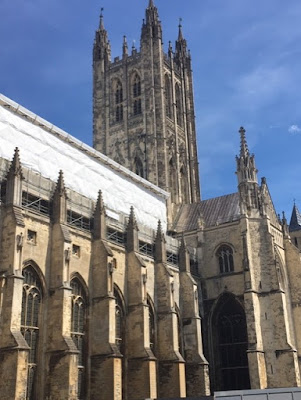It occurs to me now that it has always been sunny when I have visited Oxford. Still, the skyline is out of reach. On one occasion, I saw some people from the north of England. They watched students playing croquet on one of the lawns of the ornate colleges and muttered something about "posh people" in their broad vowels. Oxford is as distant as it ever was for many of us.
In Jude the Obscure, Thomas Hardy wrote of Christminster, an ancient university that Jude yearned to study at to better himself. Christminster was loosely based on Oxford. In the end, the "New Jerusalem" the stonemason idolized remained steeped in privilege and was out of his reach.
Clearly, there is something magical and inspiring in the air of Oxford. Charles Dodgson, better known as Lewis Caroll, wrote Alice's Adventures in Wonderland here in the 19th Century. He was a scholar and teacher at Christ Church, the most prestigious of colleges. The college's refectory was used in the Harry Potter movies.
In the 20th Century, C.S. Lewis and J.R.R. Tolkien were both on the faculty at Oxford University at the same time. Lewis' relationship with Joy Davidman, an American who died of cancer, formed the basis of the movie Shadowlands. It's vintage Anthony Hopkins, reprising his self-effacing persona in Remains of the Day before he started eating people's faces.
It's probably not surprising that Oxford spawns so many fantasies. It's an ancient and cloistered place, far removed from the outside world. It's the sunny opening of Brideshead and the jolly japes with Aloysius, the teddy bear. It's long day punting on the river and the morning bells that ring across the misty fields from the tower of Magdalen College. it's a place that flatters and shimmers in a fragile dawn sun and disappears when we reach out to touch it.

























































